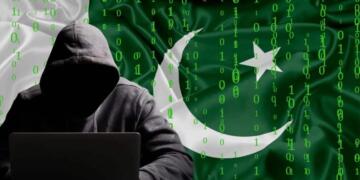US immigrants: There’s this massive misconception swirling around like a rogue tornado that most immigrants are undocumented. However, the Pew Research Center states that quite the opposite is true. In fact, “most immigrants (77%) are in the country legally,” according to their fresh-off-the-press estimates.
Digging deeper into this rabbit hole, it was discovered that as of 2017, almost half (45%, to be precise!) of these immigrants were naturalized US citizens–legally wearing the star-spangled banner like a badge of honor.
A Silent Shift
When we start throwing around words like ‘permanent’ and ‘temporary’ residents, another 27% and 5% found themselves falling into these brackets respectively. So, most folks are totally legit–certified American Dream chasers. But remember–there is complexity in simplicity. Almost a quarter (23% to be exact) of all US immigrants fell under the ‘unauthorized’ label. What’s also important to mention is that Phoenix immigration attorneys can help those dealing with legal difficulties surrounding these issues–it’s a wise move to seek their counsel.
Peaks and Troughs – The Immigrant Wave
From 1990 to 2007, we saw an insane spike in the unauthorized immigrant population – tripling like rabbits from 3.5 million to a staggering record high of 12.2 million. But hold your horses. By 2017, this swollen tide pulled back, receding by 1.7 million, or 14%. By then, the unauthorized US immigrants–totaling 10.5 million–accounted for about 3.2% of the nation’s population. Talk about some goosebump-inducing fluctuations!
Riding the Undocumented Roller Coaster
The sharp decrease in the unauthorized immigrant population can be attributed largely to a reduction in arrivals from Mexico, the single largest group of unauthorized immigrants in the US.
“Between 2007 and 2017, this group decreased by 2 million,” shares Michael Clemens, a scholar at the Center for Global Development, shedding some light on the situation.
Meanwhile, it was quite the opposite with the numbers from Central America and Asia, which saw an uptick.
The Promise of Citizenship
Firstly, let’s clear up a colossal misconception—a green card doesn’t automatically translate to a U.S. passport. Believe it or not, not every lawful permanent resident dreams of becoming a U.S. citizen– crumpling up the application papers is their chose jam. For those that do aspire, however, a five year waiting period is the bare minimum. Like waiting for water to boil when you’re parched– a real test of patience, isn’t it? In 2019, approximately 800,000 immigrants braved this pathway, ready to grasp the reins of naturalization.
Navigating the Naturalization Nebula
To lug around a U.S. passport isn’t a universal goal. It’s not just important—it’s crucial to understand the variations and nuances that influence an immigrant’s journey—those involved in this process are as diverse as the celestial bodies in a nebula. From the Pew Research Center’s extensive survey in 2015, we swoop in on an intriguing pattern. Mexican lawful immigrants, a significant segment, have the lowest rate of applying for naturalization.
Barriers: More than Just an Ocean
The path to citizenship isn’t a stroll in the park. It’s more akin to a dense forest, fraught with multiple hurdles. For Mexican-born green card holders, language is a primary culprit – a Goliath they’re yet to conquer. Personal barriers can often feel like a maze, while lack of motivation might wear the mask of a wily fox. And let’s not forget the gigantic troll – financial barriers.
It’s not just important–it’s crucial to look beyond the hyperbolic headlines to see the true nature, the undulating rhythm, of American immigration. For better or worse, they’re an integral part of the American fabric – shaping, coloring, and defining the nation. A Pandora’s box of paradoxes, if there ever was one. So, here’s to understanding, embracing, and most importantly, appreciating that. After all, aren’t we all just chasing our dreams under the same star-spangled sky?
Also Read: US Business Basics: Essential Legal and Regulatory Insights for Indian Founders



























